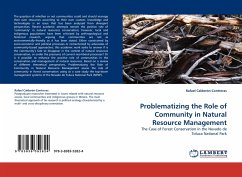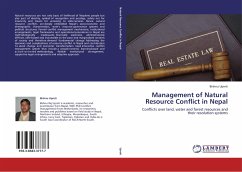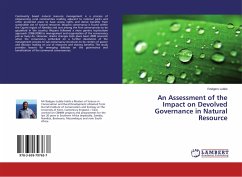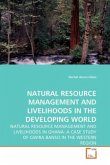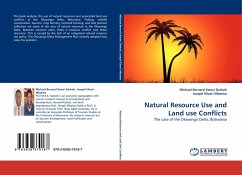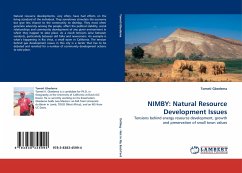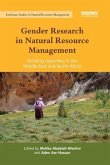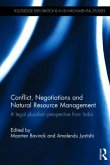The question of whether or not communities could and should manage their own resources according to their own custom, knowledge and technologies is an issue that has been analyzed from divergent perspectives. Recent academic attempts remark the positive role of community in natural resources conservation; however, local and indigenous populations have been criticized by anthropological and historical research, arguing that communities are not as environmentally-friendly as it has been stated. Either constrained by socio-economic and political processes or romanticized by advocates of community-based approaches; this academic work seeks to answer if is the community s fate to disappear in the context of natural resources conservation, or under the pressures of current neo-liberal processes? Or is it possible to enhance the positive role of communities in the conservation and management of natural resources. Based on a review of different theoretical perspectives, Problematizing the Role of Community in Natural Resource Management assess the role of community in forest conservation using as a case study the top-down management systems of the Nevado de Toluca National Park (NTNP).
Bitte wählen Sie Ihr Anliegen aus.
Rechnungen
Retourenschein anfordern
Bestellstatus
Storno

